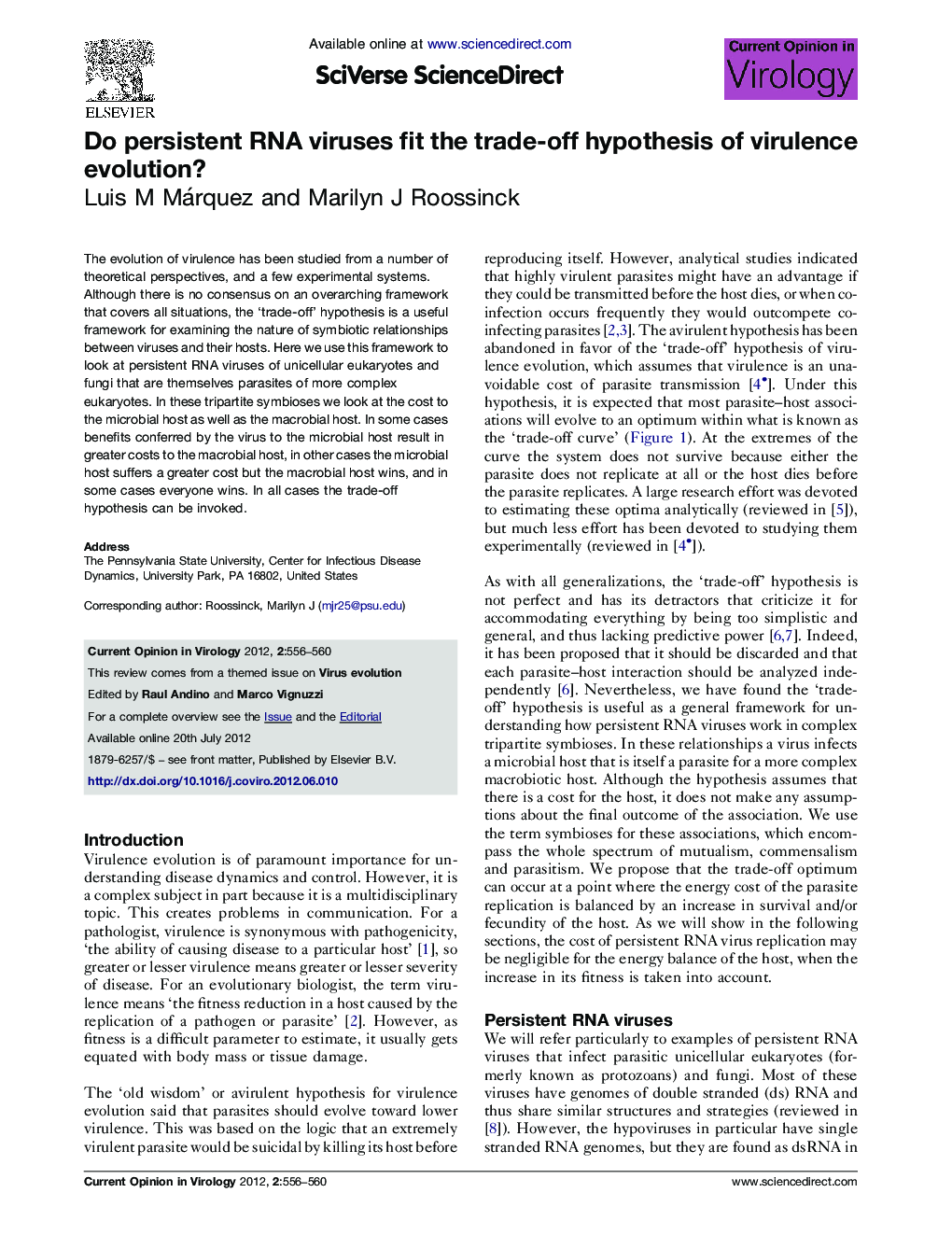| Article ID | Journal | Published Year | Pages | File Type |
|---|---|---|---|---|
| 5806915 | Current Opinion in Virology | 2012 | 5 Pages |
The evolution of virulence has been studied from a number of theoretical perspectives, and a few experimental systems. Although there is no consensus on an overarching framework that covers all situations, the 'trade-off' hypothesis is a useful framework for examining the nature of symbiotic relationships between viruses and their hosts. Here we use this framework to look at persistent RNA viruses of unicellular eukaryotes and fungi that are themselves parasites of more complex eukaryotes. In these tripartite symbioses we look at the cost to the microbial host as well as the macrobial host. In some cases benefits conferred by the virus to the microbial host result in greater costs to the macrobial host, in other cases the microbial host suffers a greater cost but the macrobial host wins, and in some cases everyone wins. In all cases the trade-off hypothesis can be invoked.
⺠The trade-off hypothesis is one framework for describing the evolution of virulence. ⺠Persistent viruses of parasitic microbial eukaryotes form tripartite symbioses. ⺠Tripartite symbioses include symbiotic lifestyles from antagonistic to mutualistic. ⺠These symbiotic relationships between viruses and hosts fit the trade-off hypothesis.
